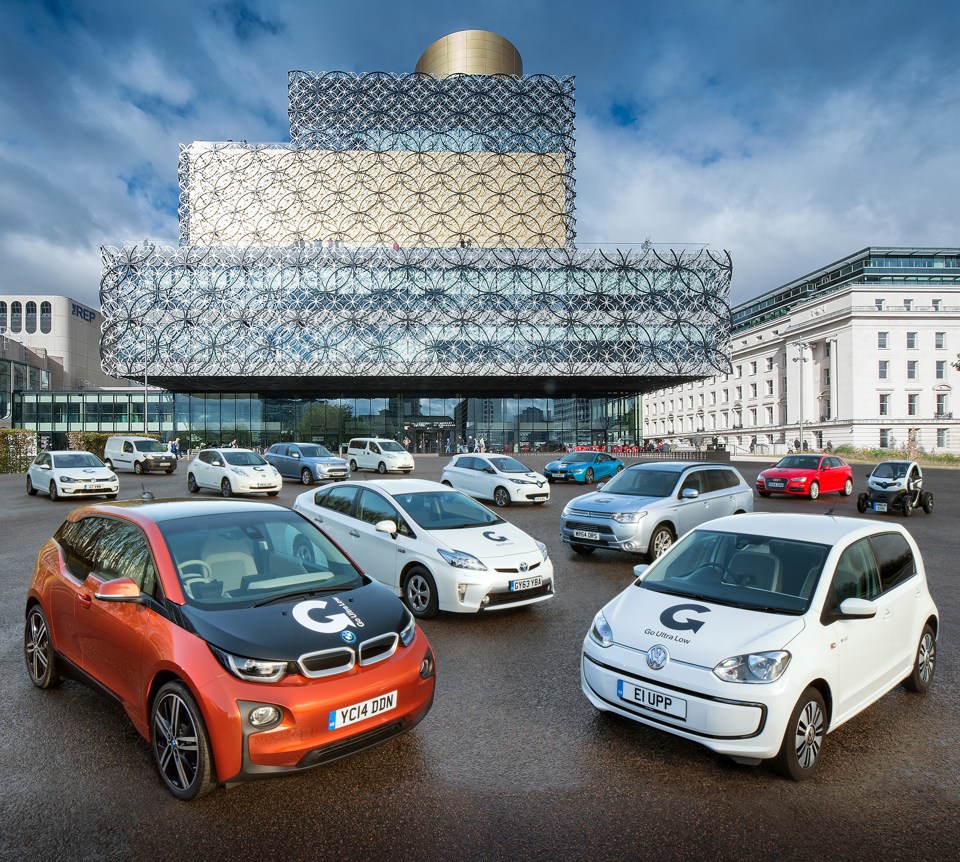Free parking and use of bus lanes are among the initiatives being considered as part of a £40 million scheme to increase the uptake of electric vehicles in eight cities.
The Government today named Bristol, London, Milton Keynes and Nottingham as ’Go Ultra Low Cities’ as the main benefactors of the scheme, with Dundee, the north east, Oxford and York sharing seed funding for EV specific projects.
Cities secured funding by pledging innovative ideas and as part of the initiative will deliver a roll-out of technology, such as rapid-charging hubs and street lighting that can double as charging points, along with a range of proposals that will give plug-in car owners further local privileges such as access to bus lanes in city centres.
Among the successful cities’ bids, London was awarded £13 million to create ‘neighbourhoods of the future’, prioritising ULEVs in several boroughs across the capital.
Proposals include low emission zones that offer parking and traffic priority to owners of plug-in vehicles.
Milton Keynes will receive £9m to open a city centre electric vehicle experience centre, a ‘one stop shop’ providing consumer advice and short-term vehicle loans.
The city also proposes to open up all 20,000 parking bays for free to EVs, give plug-in vehicles the same priority at traffic lights as local buses, while also having access to bus lanes.
With a £7m grant secured, Bristol will give ULEVs access to three carpool lanes in the city and introduce a plug-in car leasing scheme.
Nottinghamshire and Derby will use £6m of funding to install 230 charge points and offer plug-in owners discount parking, plus access to bus lanes in key routes across the city.
The investment will also pay for a new business support programme letting local companies ‘try before they buy’.
The scheme is also providing £5m of development funding for specific initiatives in Dundee, Oxford, York and north east regions to help them play their part in kick-starting a country-wide clean motoring revolution.
New commuter charging hubs in Dundee will open up links across the region for plug-in vehicle owners, while solar-canopied Park and Ride hubs in York will help reduce air pollution in and around the city.
Poppy Welch, head of Go Ultra Low, said: “We’re excited to see the innovative ideas put forward by each of the winning Go Ultra Low cities become reality over the coming months.
"The £40m investment by government, combined with funds from each winning area, will transform the roads for residents in and around the Go Ultra Low cities.
“Initiatives such as customer experience centres, free parking, permission to drive in bus lanes and hundreds of new, convenient public charging locations are sure to appeal to drivers and inspire other cities and local authorities to invest in the electric revolution.”
The Go Ultra Low Cities fund is just one element of a comprehensive £600m package of measures from the Office for Low Emission Vehicles by 2020, which also includes £400m of guaranteed money for individual plug-in car grants, investment in low emission buses and taxis and R&D funding for innovative technology such as lighter vehicles and longer-lasting car batteries.


















Darren - 25/01/2016 10:41
I'm still waiting for the government to finish rolling out motorcycles to use bus lanes. It seems it got partly done around London, and then just stopped. As a motorcyclist, you have to pay attention to bus lane signs to see if you're allowed in or not, can't we just make them all one or the other? Here's a TFL map of West London showing bus lanes (pink) and motorcycle/bus lanes (blue) http://content.tfl.gov.uk/motorcycles-bus-lanes-south-west.pdf